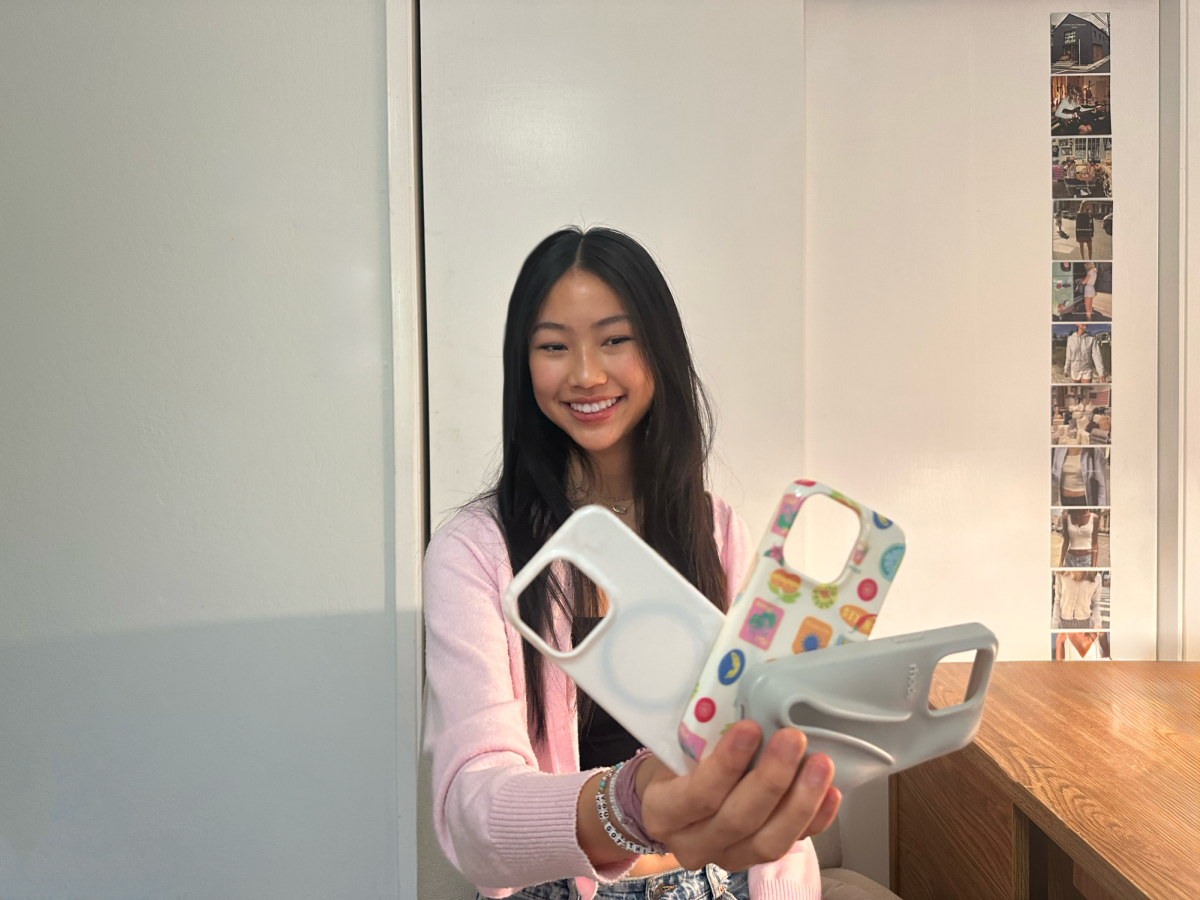Hanging an up-side-down “福” (fú) on the door for good fortune, making dumplings and watching the Spring Festival Gala used to be the staples of every Chinese New Year for me. Although my immediate family — my parents, my brother and I — lived in Beijing while the rest of our relatives were scattered across other provinces, our most cherished holiday saw festivity in every corner of China.
Coming to the U.S. at age 11 with my mom — my younger brother joined us six months later — we spent our first few U.S. Chinese New Years with my mom’s old college friend in San Jose. At the time, I struggled to connect with their American-born children because of the language barrier and a cultural divide; instead, I spent my time sitting silently, listening to the adults’ chatter.
Things changed as my mom and I made friends of our own in Saratoga, and Chinese New Year has taken on new meanings.
The “family” with whom we celebrate the holiday is different each year, but as the day approaches — usually in February, but it varies according to the lunar calendar — red ornaments pop up all around the house. My family is particularly fond of fish(yú)-shaped trinkets because they are a play on the celebratory phrase 年年有余(yú) that roughly translates to “prosperity in the new year,” and my Chinese name 陈渔(yú), meaning “fisherman.”
As night approaches, the doorbell hails the arrival of family after family. The living room becomes filled with high-pitched squeals from children, and the backyard crowded with husbands discussing whatever it is that stuffy engineers and older IT-dudes talk about.
The stars of the show are the aunties, who always come bearing food for the potluck. They religiously compliment each others’ cooking using the most flowery language that could put seasoned politicians to shame. Once this elaborate ritual is completed, they crowd around the kitchen island to make dumplings, dividing themselves into little groups for the two tasks: flattening the dough or shaping the dumplings.
I always join them because my skills deserve to be shown off to the aunties whose dumplings can be, well, not so flattering. Perhaps dumpling-making is ingrained in my blood, passed down from the generations of Northerners on my mother’s side (I got my penchant for white rice from my Southern-born paternal side). If I’m in a good mood, I might add a flourish and make a row of unique S-shaped dumplings for “Selina.” Regardless, I’m quite proud of the impeccable ones that sit primly, similar to my mother’s but with their own idiosyncrasies.
It doesn’t take long for the freshly made dumplings to finish their foamy tumble in the boiling pots and make their way onto the dinner table. The meal is a true culinary medley, with traditional Chinese cuisine mixed with dishes like spaghetti or tortilla soup, eaten with both chopsticks and forks amid multilingual chatter.
The dinner, however, is only a warm-up to the main event: the talent show, every child’s worst nightmare.
Formidable aunties strong-arm their kids into piano, violin or martial arts performances and fiercely bestow praise on every kid except their own. I’ve long learned to accept this fate as a Guzheng (traditional Chinese harp) musician, keeping a few cheerful songs up my sleeve. At least we get red envelopes filled with bills ranging from $5 to $20 — or the rare $2 if I’m lucky.
In the last hours of the celebration, my brother and his horde of friends inevitably give into the lure of video games, to the adults’ disappointment. It’s hypocritical, if you ask me, because the adults began playing poker games with an addiction no less fervent than the kids’. At last, the frenzy of distributing leftovers accompanies each family’s reluctant departure.
As I try to compose a conclusion to this piece, I fail to extract some deep meaning from my experiences. To me, celebrating Chinese New Year in America is not spectacularly special. We go about a regular day before and have a regular day afterward. We do the same things with the same people on Mid-autumn Moon Festival, Thanksgiving, Christmas or a birthday.
But here on the other side of the world, thousands of miles from where we, our parents and grandparents grew up, we have found families beyond blood — and I’d say that’s pretty special.
























